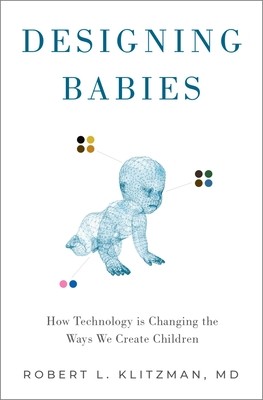
- We will send in 10–14 business days.
- Author: Robert Klitzman
- Publisher: Oxford University Press, USA
- ISBN-10: 0190054476
- ISBN-13: 9780190054472
- Format: 16 x 23.9 x 3.6 cm, kieti viršeliai
- Language: English
- SAVE -10% with code: EXTRA
Reviews
Description
Since the first "test tube baby" was born over 40 years ago, In Vitro Fertilization and other Assisted Reproductive Technologies (ARTs) have advanced in extraordinary ways, producing millions of babies. An estimated 20% of American couples use infertility services to help them conceive, and that number is growing. Such technologies permit thousands of people, including gay and lesbian couples and single parents, to have offspring. Couples can now transmit or avoid passing on certain genes to their children, including those for chronic disease and, probably sometime soon, height and eye color as well. Prospective parents routinely choose even the sex of their future child and whether or not to have twins. The possibilities of this rapidly developing technology are astounding-especially in the United States, where the procedures are practically unregulated and a large commercial market for buying and selling human eggs is swiftly growing. New gene-editing technology, known as
CRISPR, allows for even more direct manipulation of embryos' genes.
EXTRA 10 % discount with code: EXTRA
The promotion ends in 22d.05:59:18
The discount code is valid when purchasing from 10 €. Discounts do not stack.
- Author: Robert Klitzman
- Publisher: Oxford University Press, USA
- ISBN-10: 0190054476
- ISBN-13: 9780190054472
- Format: 16 x 23.9 x 3.6 cm, kieti viršeliai
- Language: English English
Since the first "test tube baby" was born over 40 years ago, In Vitro Fertilization and other Assisted Reproductive Technologies (ARTs) have advanced in extraordinary ways, producing millions of babies. An estimated 20% of American couples use infertility services to help them conceive, and that number is growing. Such technologies permit thousands of people, including gay and lesbian couples and single parents, to have offspring. Couples can now transmit or avoid passing on certain genes to their children, including those for chronic disease and, probably sometime soon, height and eye color as well. Prospective parents routinely choose even the sex of their future child and whether or not to have twins. The possibilities of this rapidly developing technology are astounding-especially in the United States, where the procedures are practically unregulated and a large commercial market for buying and selling human eggs is swiftly growing. New gene-editing technology, known as
CRISPR, allows for even more direct manipulation of embryos' genes.


Reviews